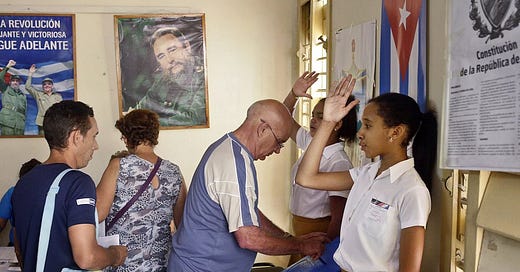In a reply to my August 27 commentary on the tendency of people outside of Cuba to dismiss the Cuban official discourse, Andrej Krickovic wrote that he would like to hear more about the formation of the new constitution during the period 2018-2019. He suggested a follow-up post on the proposals and opinions of the people and the Party with respect to economic and political reforms. I attend to this issue in today’s commentary
Based on its belief that the 1976 Constitution no longer corresponded to Cuban reality, the Communist Party of Cuba proposed to the National Assembly of People’s Power the development of a new constitution. In response, the National Assembly developed a six-step process. (1) The National Assembly formed a Constitutional Commission, composed of deputies of the National Assembly. (2) The Constitutional Commission developed a draft of the new Constitution and submitted it to the National Assembly, which voted on it article by article.
(3) A popul…


